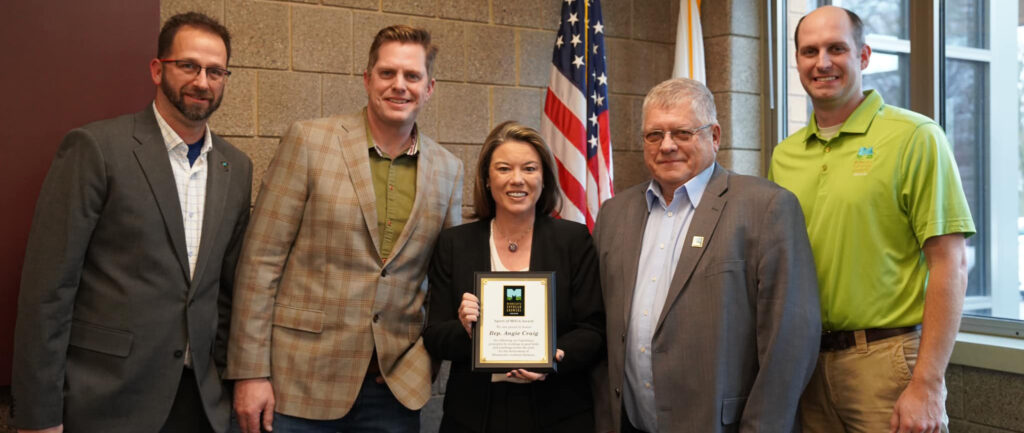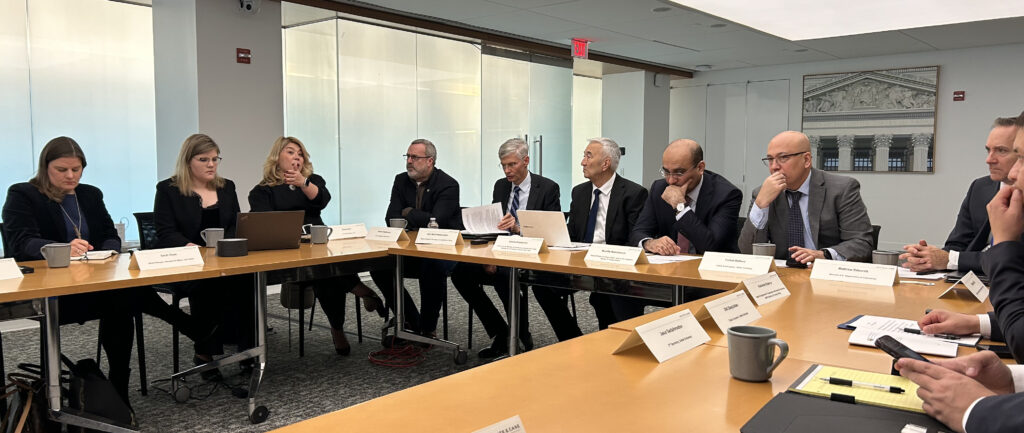In late September 2024, the Minnesota Soybean Growers Association (MSGA) joined industry partners in submitting documents to EPA on its draft Insecticide Strategy, including a coalition comment letter and a grower/applicator petition, urging the agency to ensure the framework is beneficial to U.S. agriculture.
The coalition letter, signed by over 200 organizations, raises concerns with EPA’s denial of the request for comment period extension, highlighting that the agency received 27 request letters from more than 250 organizations, including MSGA, and still denied the requests.
The groups underscored the importance of insecticides for farmers to avoid devastating pest damages and resistance management issues, also highlighting how insecticides are vital for maintaining certain conservation practices, such as cover crops and edge of field practices.
“U.S. agricultural producers stand to suffer tens of billions of dollars in crop losses and diminished conservation outcomes without continued access and meaningful use of these vital tools,” groups state in the comments. “Further, consumers may face higher costs or decreased access to foods or textile products; livestock operations may face steeper prices for animal feed; fuel and energy prices could rise due to diminished supplies of biofuels feedstocks; among numerous other irreparable harms.”
The groups also highlighted how complex the proposal is and the hundreds to thousands of calculations farmers and applicators would need to make to determine their compliance obligations; how even with an expanded number of mitigations, many of the practices still require modifications to fields and would be very costly for producers; and how there is likely to be insufficient labor to install these practices, among other issues.
The comments outline how EPA could add more practices not tied to crop type, geography or require field modification that are more affordable to implement, including training courses, which could help address the complexity of the proposal. The groups also suggest how EPA could lighten its regulatory burden and that of producers if improvements are made to its risk assessment progress.
MSGA President Darin Johnson and American Soybean Association (ASA) Director Jim Kukowski joined more than 700 growers, applicator and other ag professionals in submitting a producer petition that expressed similar concerns and urged EPA to reconsider its “complex, flawed proposal” and consider the feedback from the ag industry. “Failing to do so will inflict significant, irreparable harm on the producers of our nation’s food, fuel, and fiber, and the consumers we serve,” the petition stated.
Both letters also implored the EPA to make significant revisions to its process for assessing risks to species, which the signers contend are overly conservative and inflate the alleged risks to species in a way that requires greater restrictions than are truly necessary to protect species.
“Producers from across Minnesota and the country know that insect pests can wreak havoc on our crops,” said Kukowski, who farms in Strathcona. “It’s our job as advocates to impress upon EPA the increasing need for workable strategies for pest management.”
MSGA joins ASA in encouraging EPA to take these recommendations into consideration as it advances its Endangered Species Act framework and stands ready to assist the agency as it moves forward.






